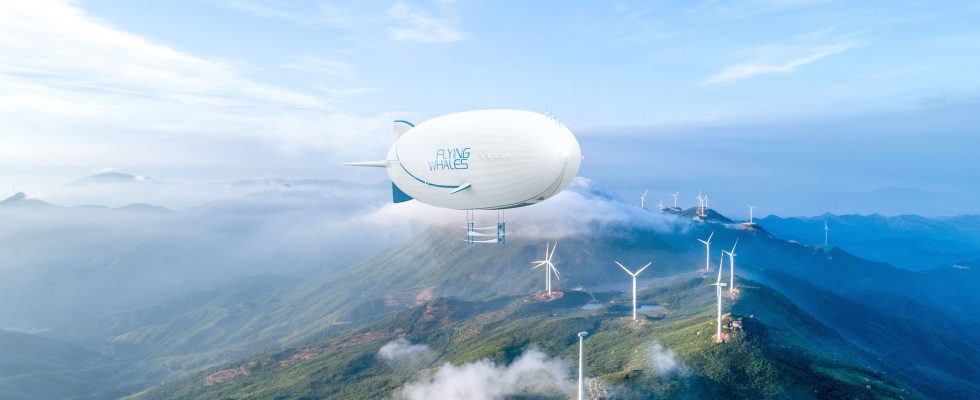Its golden age is fleeting. His disgrace, brutal. Almost a century ago, the fire that destroyed one of its flagship models, the Hindenburg, discredited it for passenger transport – just like the fuel that powered it, namely hydrogen. Shortly after, the belligerents engaged in what would become the Second World War preferred the plane to conduct their military operations. Without a sound, the airship deserts the horizon line. Attempts to rehabilitate it throughout the 20th century changed nothing.
But with the climate emergency, these air liners believe they have their revenge. Inflated with helium, they take off vertically and can travel great distances without constantly humming their engines. Result: less CO2 and a more limited footprint than that of aircraft take-off runways. Building on these promises, airships would benefit today from an alignment of the planets in France, according to André Soulage, the general director of the Safe competitiveness cluster, located in the Paca region: “We are observing a conjunction between technical solutions, a sector approach with serious players, public funding and political will.”
“Flying whales” for freight
Enough to give additional momentum to the main French initiatives. Having escaped a major air gap in 2020, the Stratobus project led by Thales Alenia Space is today at the heart of a European program aimed at developing the use of aerostats for intelligence. Lined with ultra-light solar panels, this aircraft can carry 250 kilos of payload into the stratosphere. And stay there for almost a year without moving. Ideal for carrying out listening and surveillance operations, but not only that. “We are also targeting the scientific world, for observation missions, and the telecommunications field. Stratobus could provide Internet coverage in areas poorly equipped with infrastructure,” illustrates the program director, Yannick Combet. At the risk of overshadowing satellite constellations like Starlink…
“The challenge is not so much finding uses and customers as delivering our machines,” assures the Thales spokesperson. The founder of Flying Whales knows something about this. Supported by a vast consortium of companies – Bouygues, ADP, Air Liquide, etc. –, Sébastien Bougon’s start-up says it has concluded around fifty commercial agreements to ensure the very difficult transport of wood and XXL parts, such as wind turbine blades and high voltage pylons, with its 200 meter long “flying whales”. Even with their first engine, which will be hybrid, these airships should consume “up to 30 times less energy than a plane or a helicopter”, assures the manager.
They still need to be produced. In Laruscade, in Gironde, the construction project for the Flying Whales factory is at a standstill. At issue: the opinion, certainly consultative, but very cautious of the Environmental Authority on the establishment of the site. The independent entity fears that it will have “a very strong impact on the regional natural heritage”. A setback that shakes up the start-up’s agenda. Since October, she has been revising her commitments in the hope of finally having her site accepted. “It saddens me all the more to be attacked on the environmental subject for our factory since our solution is virtuous,” regrets Sébastien Bougon.
Google co-founder ambushed
Virtuous, but not miraculous. Despite their advantages, airships should not replace the current masters of the sky en masse. “Their limitations are quite numerous, starting with their speed. Furthermore, helium is a rare gas, coveted by other industries, such as health. The question of its availability could end up arising in the event of massive deployment “, notes Julien Joly, consultant at Wavestone. And to ensure that “an offer will develop well between now and the end of the decade. It will rather cover niches, such as the transport of heavy loads and passengers, with a high-end perspective”.
In fact, few manufacturers engage in head-on competition with aircraft. Even one of the most serious players on the market, the American Lighter than Air (LTA), remains pragmatic, focusing on applications in humanitarian and freight sectors. With a major advantage: the reputation of its leader, who is none other than the co-founder of Google, Sergey Brin.
.
